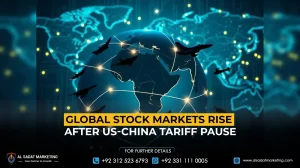Islamabad – In a remarkable departure from the chaos that defined the same date just a year ago, May 9, 2025, witnessed an unexpected calm and unity across Pakistan. Once remembered for violent riots, political confrontation, and national division, the day this year evolved into a symbol of restraint and collective maturity, especially in the backdrop of growing tensions with India.
Previously declared a “Black Day” by the government in 2024 to honor the martyrs and condemn attacks on military institutions and public infrastructure, May 9 had been a contentious reminder of internal discord. Prime Minister Shehbaz Sharif, during a speech on the first anniversary of the unrest, had emphasized the importance of never repeating such tragic events. President Asif Ali Zardari echoed the sentiment, urging national unity and a commitment to democratic principles.
However, this year marked a significant turning point. The expected clashes and political volatility were replaced by measured responses and a rare sense of national solidarity. The youth—who form nearly 60 percent of Pakistan’s population and were at the forefront of last year’s unrest—chose to stand with the state rather than against it, recognizing the broader implications of a divided front amidst external threats.
Also Read: Top 5 Architectural Styles That Fit the Lakeshore City Lifestyle
While the Pakistan Tehreek-e-Insaf (PTI) held rallies and reiterated demands for the release of imprisoned party leader Imran Khan and others, the tone remained relatively restrained. There were no violent protests, no major disruptions, and a conscious effort from all political sides to prevent escalation.
Army Chief General Syed Asim Munir, during a visit to Lahore Garrison, reaffirmed the military’s determination to hold accountable those responsible for the 2023 riots, labeling them as “indoctrinated miscreants.” He condemned digital misinformation campaigns aimed at dividing the public and military, asserting that there would be no compromise in pursuing justice against the planners of the previous year’s attacks.
In a notable shift, even critics of the military and the system displayed support, acknowledging that the country’s internal challenges could be set aside in the face of greater national concerns. Social media narratives also reflected this change, with former dissenters advocating unity and resilience.
From the halls of parliament to the streets of Lahore, Karachi, and Islamabad, the political temperature cooled significantly. There were no major confrontations, and even PTI supporters avoided direct clashes. Instead, the day became a testament to the growing political awareness among Pakistanis, where democratic expression no longer translated into conflict.
While the government maintained May 9 as a day of remembrance, it also promoted the message of peace and collaboration. The military continued its security duties with impartiality, reaffirming its role as a protector of all citizens, regardless of political allegiance.
The events of May 9, 2025, may well be remembered as a pivotal moment in Pakistan’s evolving democracy—when the country, for once, chose unity over division, maturity over emotion, and resilience over reaction.










